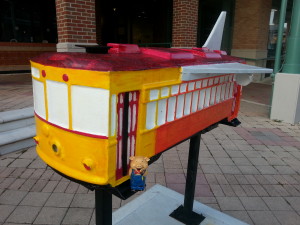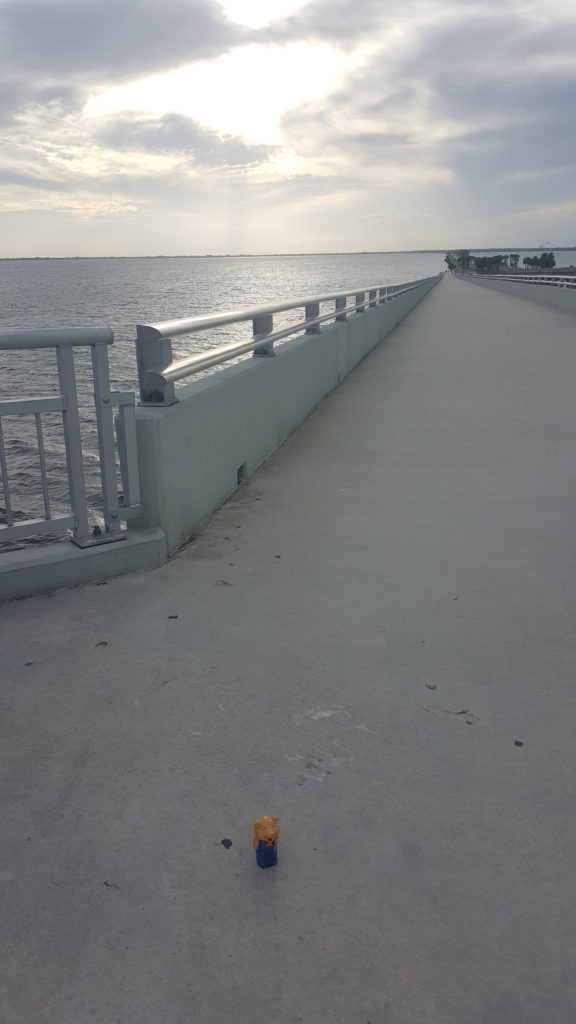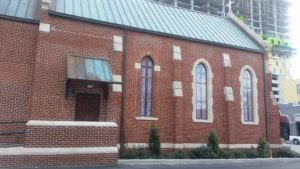
Me: Are you ready for take off!
Prodigal: Yes, this is going to be a fun flight!
Me: I think it will be too.
This is from the book Where Angels Walk by Joan Wester Anderson
David Moore and his wife, Florence, discovered in July 1971 that Florence’s mother was dying of cancer. The Moores lived in the small town of Yoakum, Texas, then, but they began driving back and forth to Hendersonville, North Carolina, to visit the sick woman. After one trip, David decided to leave the car in North Carolina for Florence to use, and take the bus back to Texas.
“It was the worst idea I ever had,” he says, laughing. “Forty-six hours of riding and listening to babies cry! On our budget I couldn’t afford to fly, but I made a vow to walk if I had to–anything to avoid getting on another bus!”
The following week, as David packed and planned a hitchhiking route to Hendersonville, Henry Gardner phoned. Henry had heard about David’s transportation problems, and he volunteered to fly David to North Carolina in his small Cessna 180 and get in some sight-seeing at the same time. David acccepted gratefully.
David had never flown in a small plane, and he was nervous as the two men taxied down the runaway early the next morning. But the little aircraft lifted gracefully, and he sat back to handle this unfamiliar duties as navigator. Within a half hour, however, as they neared Houston, they ran into fog.
“This is no problem,” Henry reassured an increasingly nervous David. “We have aviation maps on board, and look- you can see the Houston radio towers rising above the fog. All we have to do is watch the towers, and we can tell where we are.”
He was right, and their journey continued. But the fog worsened, and just outside of Jackson, Mississippi, the plane’s radio and instruments died. Now the pair couldn’t see anything on the ground, nor could they talk to people in the control tower.
Just as David was becoming desperate, the fog lifted for a moment to reveal the airport directly beneath them. Henry took the plane down smoothly, and within minutes that had found an airport mechanic. Relieved, the two men grabbed a quick lunch and were soon airborne, with instruments and radio restored and fuel tanks filled.
Everything went smoothly for a while. The sun had come out, and David’s tension diminished. He began to enjoy the flight and his bird’s-eye view of the ground. As they traveled northeast, he could see Atlanta off to his right. “I was getting excited, ” David says, “knowing that soon I would be with my wife and daughter again,”.
But as the plane passed Greenville, South Carolina, the fog, which had been patchy and broken, turned once again into a continuous gray mass. There was enough visibility for Henry to clear the first mountain range, but as the two looked into the distance, they saw a solid wall of fog, and their hearts sank. Henry radioed Asheville Airport for instructions.
“Our field is closed because of fog,” the air-traffic controller responded,” and we have no capability for instrument landing. Return to Greenville and land there.”
“But I can’t, Henry protested. “We’re almost out of fuel–we won’t have enough to fly back to Greenville.”
There was a silence. Then, “Okay,” the radio voice snapped. “We’ll get the ground crew ready. Come in on an emergency landing.”
David gripped the sides of is seat. They seemed to be flying in a dense gray blanket, and the Asheville control tower couldn’t possibly see them. How were he and Henry going to land? We can use the aviation maps, just like we did before,” Henry reassured David, and after a brief scan of the blueprint, he began his blind descent. The airport runway should be beneath them–but what if it wasn’t?
Suddenly a voice came over the radio: “Pull it up! Pull it up!”
Henry immediately pulled up on the stick. As he did so, the men saw a split in the fog, and the view beneath sent tremors of fear through each of them. Instead of being over the runway, they were above an interstate highway! Had they descended a few feet farther, they would have hit a bridge and certainly crashed.
The two looked at each other. They were almost out of fuel, and inside the grayness it was impossible to know where they were. Henry tried to descend again, but almost hit the tips of trees poking above the fog. Again, he pulled up sharply. There seemed to be no way out of their dilemma. Without enough fuel–or guidance from the control tower–how could they possibly land?
Then, with enormous relief, the heard the controller’s composed voice breaking into the tense silence in the cockpit. “If you listen to me,” he said, “I’ll help you get down.”
“Go ahead,” Henry radioed back in relief.
The controller began his instructions. “Come down just a little,” he said, “Now over to the right. Down a little more…..”
David gripped the seat, praying intently. Thank God the controller had been able to pick them up on radar, despite the airport’s apparent lack of the necessary instruments. But would they make it in time? It seemed impossible. The fuel needle hovered on E but the voice went on with calm authority: “Not so fast. Easy, easy now….” Was this nightmare flight ever going to end? And would he see his wife and daughter again?
“Raise it up a little now. No, you’re too far left.” The journey seemed to be taking forever. But all of a sudden the controller said, “You’re right over the end of the runway. Set it down….now!”
Obediently, Henry dropped the plane through the fog, and the two men recognized the beginning of a runway just ahead, with lights along both sides. It was the most welcome sight they had ever seen. Within minutes, they had touched down. Tears of gratitude and relief filled David’s eyes when he saw Florence standing at the end of the runway.
The plane taxied to a stop, and the two men offered a quick prayer of thanksgiving. Then Henry turned the radio on again. “Thanks so much,” he told the air-traffic controller, his voice shaky with relief. “You probably saved our lives.”
But the controller’s response stopped both men in their tracks. “What are you talking about? We lost all radio contact with you when we told you to return to Greenville.”
“You what?” Henry asked incredulous.
“We never heard from you again, and we never heard you talking to us or anyone else.” the controller told them. “We were stunned when we saw you break through the clouds.”
David and Henry looked at each other. Who had guided them through the grayness and onto safe ground? They would never know for sure. But even today David never hears a small airplane without thinking of that flight. “I know now that, insignificant as I may be in this big world, God always has His eye on me.” he says. “He sustains me through the storm and the fog.”
As for God his way is perfect; the word of the Lord is tried; he is a buckler for all them that trust in him.
2 Samuel 22:31
Jennifer Van Allen
www.theprodigalpig.com
www.faithincounseling.org


























